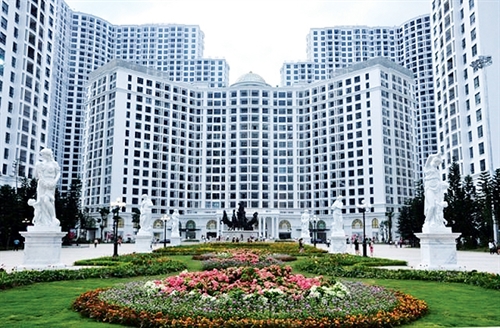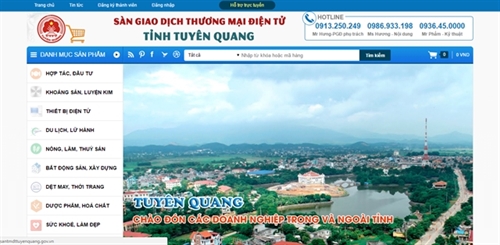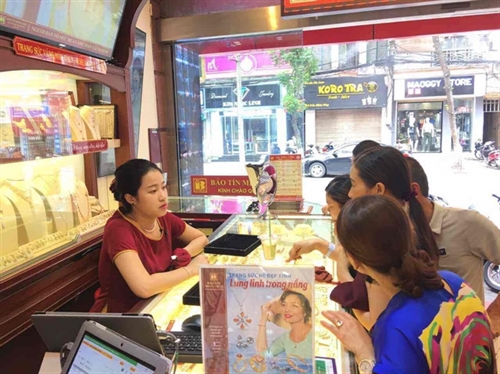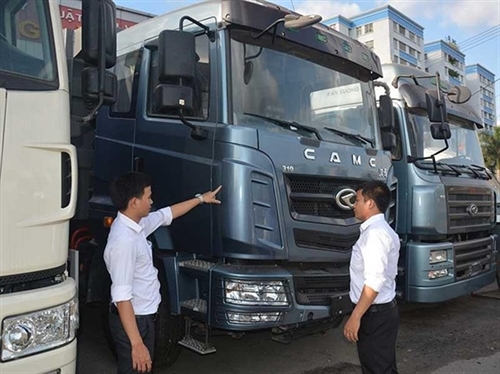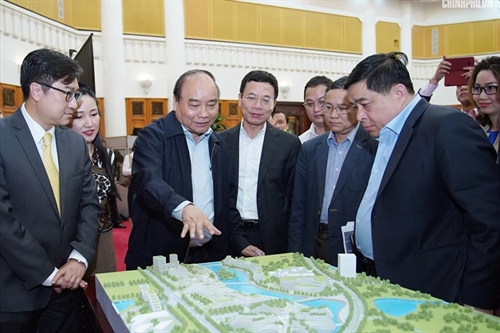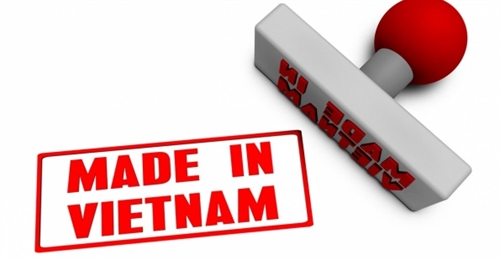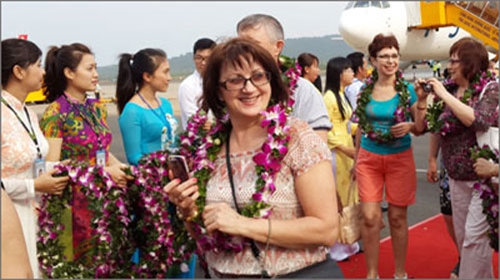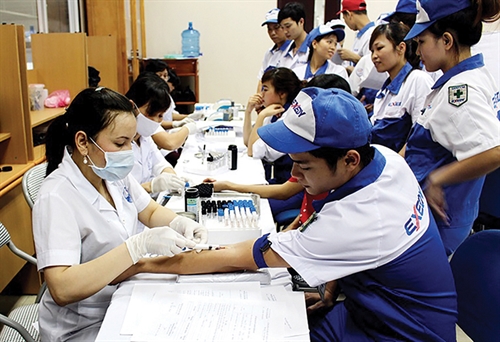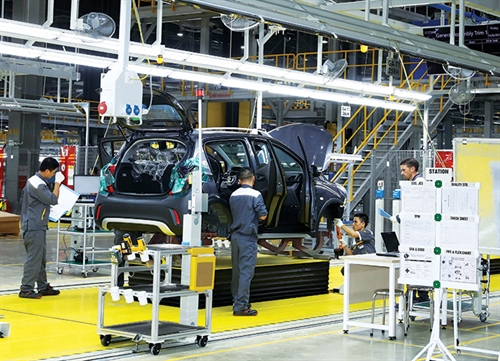The Government will soon issue a revision to Decree 116/2017 on the conditions for production, assembly, import and business of automobile warranty and maintenance services, removing a number of regulations relevant to auto imports.
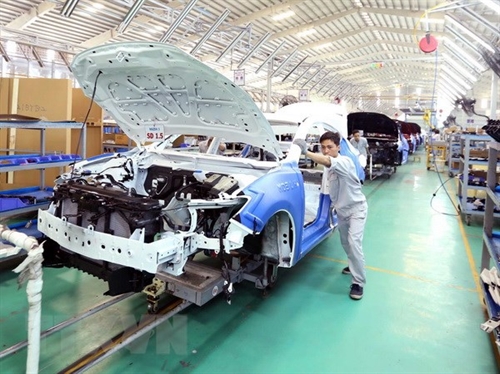 |
| An auto manufacturing line of Thaco Group in Chu Lai Open Economic Zone in Quang Nam province__Photo: VNA |
The statement was released by Minister and Chairman of Government Office Mai Tien Dung at a recent conference held in Hanoi.
He said the revision would include changing from the current inspection for each batch of imported vehicles to type of vehicles, which are considered to be difficult and expensive for businesses.
With the current capacity of auto registration centers, Dung said the inspection of imported automobiles should change from the current pre-inspection to post-inspection.
The revision, drafted by the Ministry of Industry and Trade (MoIT), would now be open to opinions from businesses and the public.
“In the past two years after the decree was issued, the domestic automobile industry has made progress, protecting the interests of consumers while State management has also been stricter in the import of vehicles,” Dung said.
According to Dung, the revision of Decree 116 is appropriate in the context of the automobile market and the import of cars has stabilized. Evidence is that all auto businesses have confirmed the origin and type of imported cars, strictly complying with the provisions of Decree 116. Meanwhile, the number of imported vehicles has increased.
According to a report by the MoIT, after the import duty was reduced to zero from 2018 under the ASEAN Trade in Goods Agreement (ATIGA), domestic manufacturers initially affirmed their role and position in the automobile market. Especially, Decree 116 has played an important role in protecting the production and assembly of cars in the country.
The report shows that after the decree was issued, some ASEAN countries such as Thailand, Indonesia, Malaysia, the Philippines and other WTO members such as the US, Japan and EU raised concerns about Decree 116, saying it may create additional procedures and hinder businesses in exporting cars to Vietnam as well as violating national treatment principles.
“The import of cars has slowed down due to Decree 116 but has increased sharply again,” stated the report.
The MoIT said that the current output between domestically-produced vehicles and imported vehicles had changed significantly. In 2017, the number of domestically-produced vehicles was 2.5 times higher than imported ones. The figure was 3.72 times in 2018. In the first six months of this year, it decreased to 1.74 times.
However, the ministry said that the domestic sector would not maintain its advantage in the market if it did not attempt to improve quality and lower production costs to increase competitiveness, especially against vehicles imported from ASEAN, which enjoy preferential import tariffs.
The ministry said it needed to issue solutions supporting and promoting the domestic automobile industry to compete with imported cars, especially those from ASEAN.
Nguyen Minh Dong, an expert in the automobile industry, told plo.vn that imported cars were increasingly narrowing the sales gap with domestically-assembled cars because the auto businesses had met requirements of Decree 116, increasing supply.
“In addition, imported models are hitting the low-cost segment that used to be the playground for locally-assembled cars,” Dong said.
To increase the competitiveness for domestic automobiles, Dong said it was necessary to adjust tax and fee policies to help domestic automobile manufacturers and assemblers reduce costs.
“But the most important thing is that domestic automakers must strive to improve quality and lower production costs to enhance competitiveness. The price of domestically-manufactured and -assembled cars is still high, making it difficult to promote the industry,” he added.
To solve the problem, the MoIT proposed the Government not apply special consumption tax for automobiles which are locally-produced, as part of efforts to reduce the price of cars.
The ministry also expected the Government to adjust import tax on the principle that the import tax rate on components, spare parts and raw materials must be lower than the import tax rate on completely built-up cars, or at floor level according to international commitments in each period.
In addition, the tax rate will be reduced to zero per cent for items on cars with nine seats or fewer, such as engines and gearboxes, which are valid until 2025.- (VNS/VLLF)
